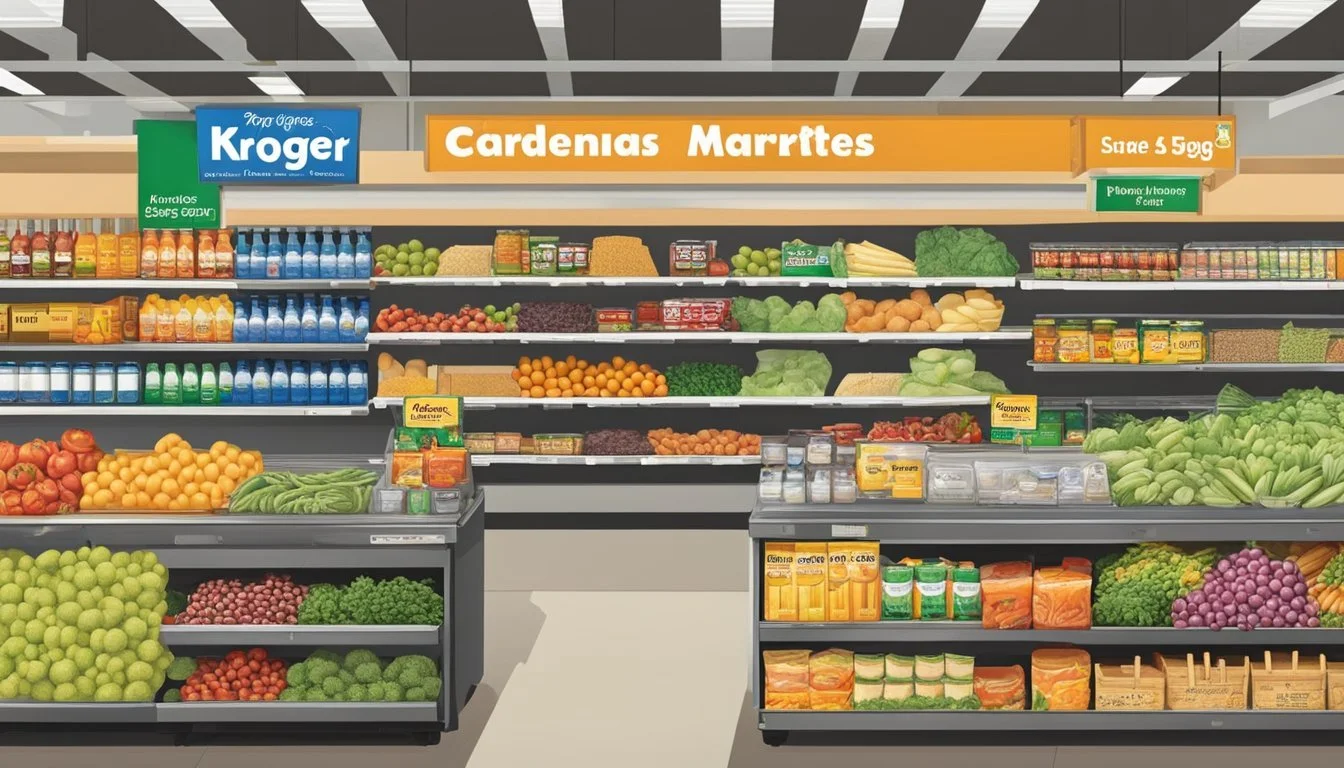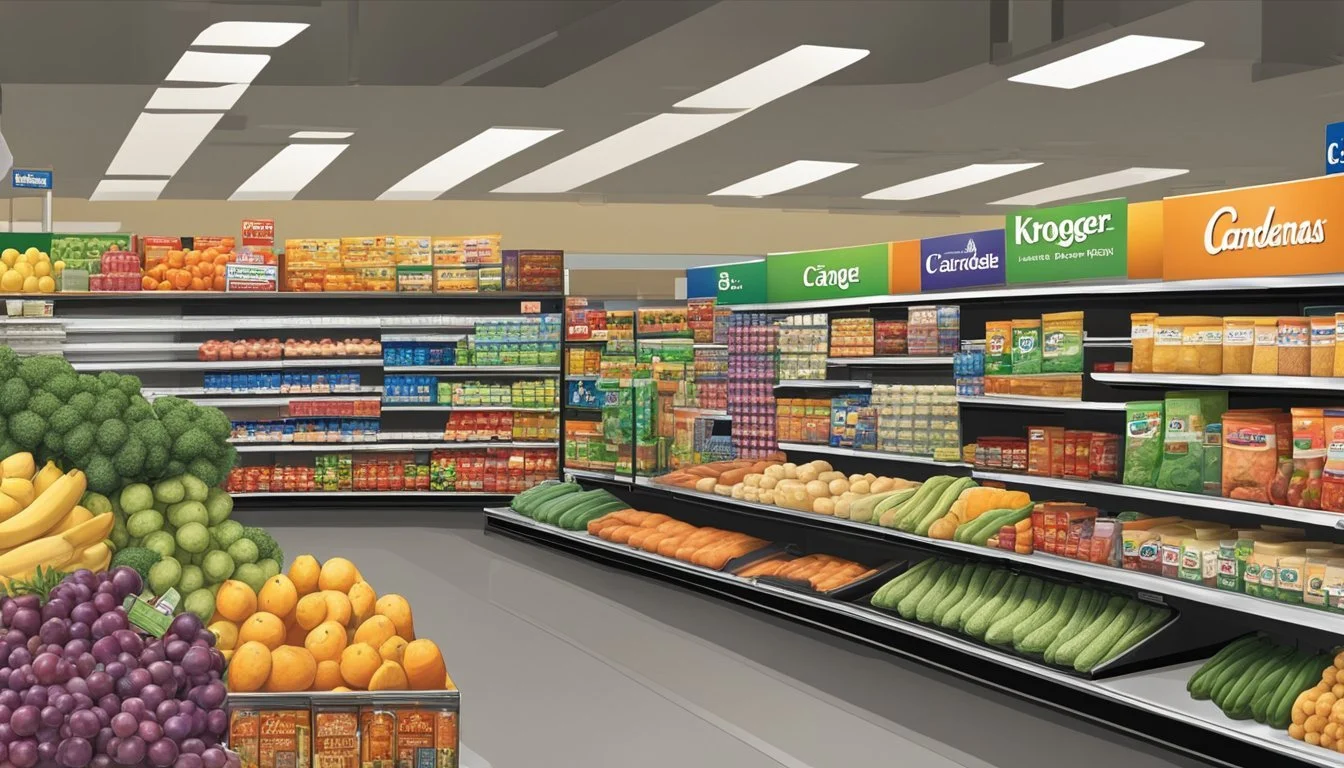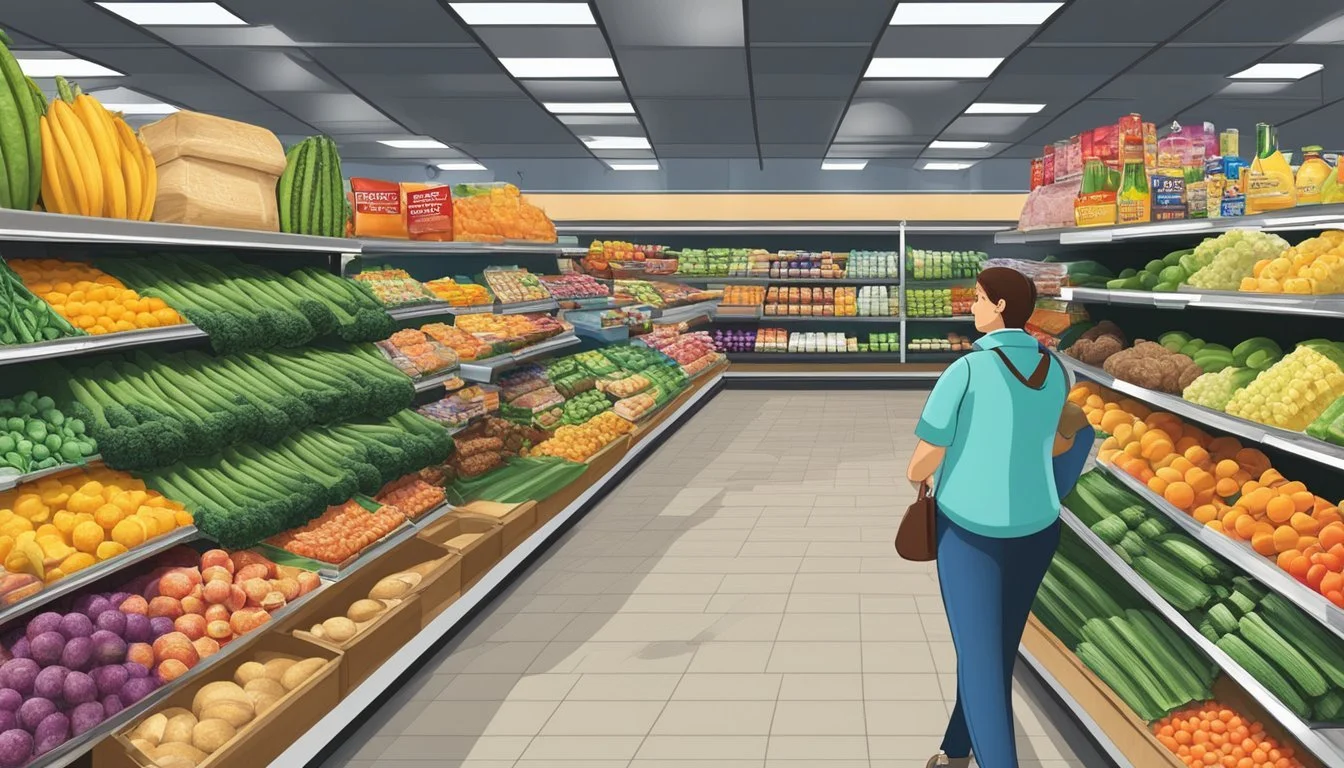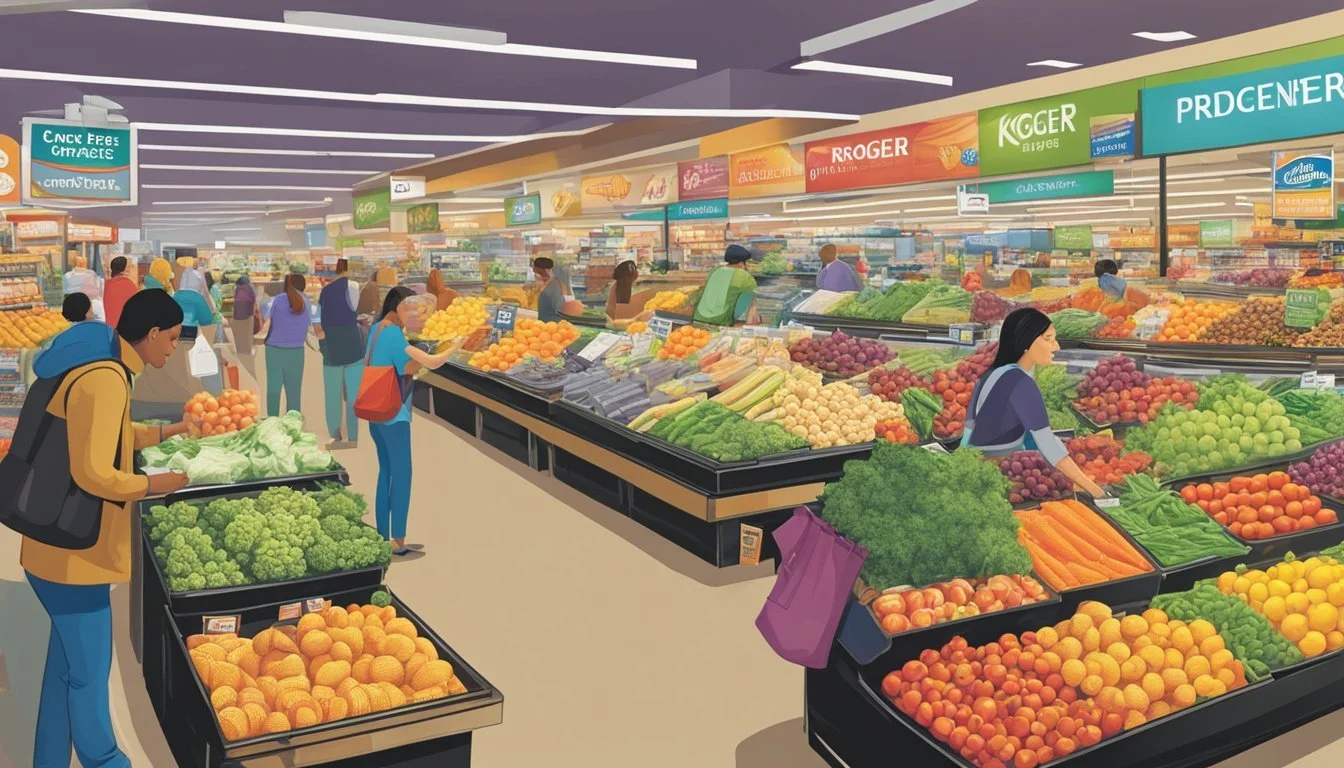Is Cardenas Markets Cheaper Than Kroger?
A Price Comparison of Two Major Grocery Chains
Grocery shopping can be a significant expense for many households, prompting consumers to seek out the most affordable options. Cardenas Markets and Kroger are two popular grocery chains that cater to different demographics and regions. While both stores offer competitive pricing, their overall cost comparison depends on various factors.
Based on available data, Kroger generally offers lower prices on a wider range of products compared to Cardenas Markets. Kroger's extensive network of stores, efficient supply chain, and diverse product selection contribute to its ability to maintain competitive pricing. Cardenas Markets, on the other hand, specializes in Hispanic and Latino foods, which may be priced differently due to import costs and specific product sourcing.
It's important to note that pricing can vary by location, seasonal promotions, and specific product categories. Shoppers may find certain items more affordable at Cardenas Markets, particularly specialty products or fresh produce popular in Hispanic cuisine. Ultimately, the best value for individual consumers will depend on their specific shopping needs and preferences.
Overview of Cardenas Markets
Cardenas Markets is a prominent Hispanic grocery chain with a strong presence in the western United States. The company offers a wide range of authentic foods and specialty products catering to Hispanic communities.
History and Growth
Cardenas Markets was founded in 1981 in Ontario, California. The company has experienced significant expansion over the years, growing from a single store to a major regional chain. Today, Cardenas operates over 50 stores across California, Nevada, and Arizona.
The grocery chain has pursued an aggressive growth strategy, aiming to open 5-10 new stores annually. This expansion plan reflects Cardenas Markets' ambition to become the largest Hispanic grocer in America.
In 2022, investment funds managed by Apollo agreed to acquire Cardenas Markets. This acquisition included plans to merge Cardenas with Tony's Fresh Market, creating a combined entity with approximately $1.8 billion in revenue from 78 stores.
Store Departments and Products
Cardenas Markets offers a diverse range of departments and products tailored to Hispanic shoppers. The store's perimeter departments, including fresh meat and produce, account for the majority of sales.
Key departments include:
Fresh produce
Meat and seafood
Bakery
Deli
Prepared foods
The chain emphasizes high-quality, specialty groceries at affordable prices. This focus on value and authenticity has helped Cardenas build a loyal customer base.
Focus on Hispanic Groceries
As a Hispanic grocer, Cardenas Markets specializes in authentic foods and products popular in Latin American cuisines. The company's product selection reflects the diverse tastes and preferences of Hispanic communities.
Cardenas offers:
Imported goods from Latin America
Traditional ingredients for Hispanic recipes
Fresh tortillas and Mexican-style baked goods
Specialty meats and marinades
Latin American produce varieties
This focus on Hispanic groceries sets Cardenas apart from mainstream supermarket chains. The company's commitment to authenticity and cultural relevance has been key to its success in serving Hispanic communities across the southwestern United States.
Overview of Kroger
Kroger stands as a major force in the American retail landscape, known for its extensive grocery offerings and nationwide presence. The company has a rich history, diverse product range, and significant market share in the competitive supermarket industry.
Company Background
Kroger was founded in 1883 by Barney Kroger in Cincinnati, Ohio. From its humble beginnings as a single grocery store, it has grown into the largest supermarket chain in the United States. The company's long-standing commitment to customer service and quality products has been a key factor in its success.
Kroger has expanded through both organic growth and strategic acquisitions over the years. This approach has allowed it to diversify its operations and strengthen its market position.
Product Range and Services
Kroger offers a comprehensive range of products, catering to various consumer needs:
Groceries (fresh produce, meat, dairy)
Household items
Health and beauty products
Pharmacy services
Fuel stations at select locations
The retailer has also embraced technology, providing online shopping and grocery delivery services to meet changing customer preferences. Kroger's private label brands offer quality alternatives at competitive prices.
Market Presence
Kroger operates over 2,700 stores across 35 states, making it a dominant player in the U.S. retail sector. Its annual revenues exceed $121 billion, reflecting its substantial market share.
The company's store formats include:
Traditional supermarkets
Multi-department stores
Marketplace stores (larger format with expanded general merchandise)
Kroger has adapted to local markets, operating under various banners such as Fred Meyer, Ralphs, and Harris Teeter in different regions. This strategy allows the retailer to maintain a strong local presence while benefiting from its national scale.
Price Comparison
Cardenas Markets and Kroger employ distinct pricing approaches to attract customers. Their average price points, promotional strategies, and discount offerings shape the overall shopping experience for consumers.
Pricing Strategies
Cardenas Markets focuses on providing competitive prices for Hispanic and Latino grocery items. They emphasize fresh produce, meats, and authentic ingredients at affordable rates. Kroger, as a larger national chain, utilizes a mix of everyday low prices and frequent sales. Kroger's size allows for bulk purchasing power, potentially leading to lower costs on some items. Both stores use loss leaders - products priced below cost to draw customers in. Cardenas often features deals on cultural staples, while Kroger rotates discounts across various departments.
Average Price Points
Comparing average prices between Cardenas Markets and Kroger can be challenging due to differences in product selection. Cardenas typically offers lower prices on Hispanic foods and produce. A basket of common items at Cardenas may cost 5-10% less than at Kroger. However, Kroger's broader selection and frequent sales can make some categories more affordable.
Price comparison example:
Avocados: Cardenas $0.89 each, Kroger $1.29 each
Tortillas (30 count): Cardenas $2.49, Kroger $2.99
Chicken breast: Cardenas $2.29/lb, Kroger $2.49/lb
Discounts and Savings
Both stores provide various ways for consumers to save money on groceries. Cardenas Markets offers:
Weekly ad specials
Digital coupons
Loyalty program discounts
Kroger's savings options include:
Kroger Plus Card for member-only discounts
Digital and paper coupons
Fuel points program
Weekly ad deals
Clearance sections
Kroger's more extensive loyalty program and digital integration may offer more diverse savings opportunities. However, Cardenas' targeted discounts on Hispanic items can provide significant savings for shoppers seeking these products.
Shopping Experience
Cardenas Markets and Kroger offer distinct shopping experiences, with each catering to different customer preferences. Their in-store services, online platforms, and customer support shape how consumers interact with these grocery chains.
In-Store Services
Cardenas Markets emphasizes a Hispanic-focused shopping experience. Their stores feature La Cocina, an in-house kitchen preparing fresh, authentic Latin dishes. Customers can find a wide selection of Hispanic products and produce.
Kroger provides a more mainstream American grocery experience. They offer pharmacy services, floral departments, and deli counters in many locations. Some Kroger stores include fuel centers, adding convenience for shoppers.
Both chains provide money services and check cashing, though specific offerings may vary by location.
Online Shopping and Apps
Kroger has invested heavily in its digital presence. The Kroger app allows customers to create shopping lists, access digital coupons, and place orders for pickup or delivery. Their online platform is user-friendly and integrates with loyalty programs.
Cardenas Markets has also embraced online shopping. Their app enables customers to browse products, find store locations, and view weekly ads. While not as extensive as Kroger's, Cardenas' digital offerings cater well to their target demographic.
Both chains offer options to shop online and schedule pickup or delivery, streamlining the grocery shopping process for busy consumers.
Customer Service
Kroger emphasizes customer service training for employees. They offer various ways for customers to provide feedback, including in-store, online, and through their app. Their loyalty program provides personalized deals and fuel points.
Cardenas Markets focuses on creating a welcoming atmosphere for Hispanic shoppers. Staff members are often bilingual, enhancing communication with Spanish-speaking customers. They prioritize product knowledge, especially for traditional Hispanic ingredients.
Both chains strive to maintain clean stores and efficient checkout processes. Customer service desks are typically available for returns, exchanges, and addressing shopper concerns.
Delivery and Accessibility Options
Cardenas Markets and Kroger offer various delivery and pickup options to cater to customer needs. Both chains partner with third-party services to expand their reach and provide convenient shopping solutions.
Comparison of Delivery Services
Cardenas Markets collaborates with Instacart for same-day delivery and pickup services. Customers can order groceries online and have them delivered to their doorstep or ready for pickup at the store. Kroger provides delivery through multiple partners, including Instacart and their own Kroger Delivery service.
Kroger's delivery fees vary based on order size and location. For Instacart orders, fees start at $3.99 for orders over $35 and $7.99 for those under $35. A 5% service fee is also applied. Cardenas Markets' delivery fees through Instacart are similar, but exact pricing may differ by location.
Both chains offer 2-hour delivery options in select areas, allowing customers to receive their groceries quickly.
Membership and Fees
Kroger offers a membership program called Boost, which provides free delivery on orders over $35 and additional fuel savings. The program has two tiers with different annual fees and benefits.
Cardenas Markets does not have a specific membership program for delivery. However, customers can access Instacart Express membership, which provides free delivery on orders over $35 and reduced service fees.
For non-members, both chains typically charge delivery fees and service fees. These fees can vary based on order size, delivery time, and location.
Geographic Accessibility
Kroger has a wider geographic presence, with stores across multiple states in the U.S. This extensive network allows for broader delivery coverage in both urban and suburban areas.
Cardenas Markets primarily serves Hispanic communities in California, Arizona, and Nevada. Their delivery service is available in these regions, focusing on areas with high concentrations of their target demographic.
Both chains continue to expand their delivery coverage, partnering with services like Instacart and DoorDash to reach more customers. Pickup options are available at most store locations for both Cardenas Markets and Kroger, providing an alternative for those who prefer to collect their groceries themselves.
Loyalty Programs and Promotions
Kroger and Cardenas Markets offer distinct loyalty programs and promotions to attract and retain customers. These initiatives provide various benefits, from discounts to personalized offers.
Rewards Systems
Kroger's free loyalty program, Kroger Plus, allows customers to save an average of $576 per year. Members receive exclusive discounts and access to digital coupons. Kroger also offers Kroger Boost, a paid program with two tiers: $59 and $99 annually. The $59 tier provides free next-day delivery on orders over $35, while the $99 tier offers free delivery in under two hours.
Cardenas Markets' loyalty program, called "Cardenas Club," is free to join. Members earn points on purchases, which can be redeemed for discounts on future shopping trips. The program also provides birthday rewards and exclusive member-only pricing on select items.
Exclusive Deals
Kroger Plus members gain access to weekly digital coupons and personalized offers based on shopping habits. The program frequently features "Free Friday" promotions, where members can download a coupon for a free item each week.
Cardenas Club members receive exclusive deals through the Cardenas mobile app. These offers often include discounts on fresh produce, meats, and prepared foods, reflecting the chain's focus on Hispanic and Latin American cuisine.
Targeted Promotions
Kroger uses data analytics to create targeted promotions for individual customers. These personalized offers appear in members' digital accounts and often align with their purchasing history. The company also sends tailored coupons via mail to boost engagement.
Cardenas Markets employs a similar strategy, sending targeted promotions to members via email and text messages. These offers frequently highlight cultural events and holidays relevant to their customer base, such as Cinco de Mayo or Día de los Muertos.
Both chains use their loyalty programs to gather customer data, enabling them to refine their product offerings and marketing strategies. This approach allows for more effective promotions and a better shopping experience for customers.
Additional Services and Offerings
Cardenas Markets and Kroger offer various supplementary services to enhance the shopping experience. These include convenient meal solutions, curated product selections, and culinary inspiration for customers.
Meal Delivery and Kits
Kroger provides a robust meal delivery service through its partnership with Home Chef. Customers can order pre-portioned ingredients and recipes for easy meal preparation at home. Cardenas Markets has recently partnered with Amazon to offer grocery delivery in select areas, expanding its reach to customers who prefer online shopping.
Both stores offer ready-to-eat meals and meal kits in-store. Kroger's Simple Truth and Home Chef lines feature a variety of options, from salads to complete dinner solutions. Cardenas Markets specializes in fresh, authentic Latin American prepared foods, including tamales, salsas, and ready-to-grill meats.
Specialty Items and Handpicked Selections
Kroger's "Treasure EmporiYum" showcases unique and gourmet products, often sourced from local and artisanal producers. This curated selection includes specialty cheeses, imported chocolates, and small-batch sauces.
Cardenas Markets excels in offering a wide array of Latin American specialty items. Their produce section features hard-to-find tropical fruits and vegetables. The meat department provides cuts popular in Latin cuisine, such as thin-sliced beef for carne asada.
Both stores prioritize fresh products. Kroger's Fresh for Everyone campaign emphasizes high-quality produce, while Cardenas Markets prides itself on authentic, fresh ingredients for Latin cooking.
Recipes and Cooking Tips
Kroger's website and mobile app offer a vast collection of recipes, searchable by ingredient or dietary preference. They provide step-by-step instructions, nutritional information, and the ability to add recipe ingredients directly to online shopping carts.
Cardenas Markets focuses on traditional Latin American recipes and cooking techniques. Their website features a recipe section with authentic dishes like chile rellenos and pozole. In-store, customers can find recipe cards and cooking tips near relevant ingredients.
Both stores offer seasonal recipe ideas and cooking tips through their weekly flyers and social media channels. Kroger provides video tutorials for cooking techniques, while Cardenas Markets often highlights traditional cooking methods for Latin staples.
Marketplace Competition
Grocery chains face intense competition as they vie for market share and consumer loyalty. Pricing strategies, store formats, and digital offerings play crucial roles in this dynamic landscape.
Competitors' Strategies
Walmart leads the grocery market with its low-price strategy and vast network of stores. The retail giant leverages its scale to negotiate better deals with suppliers, passing savings to customers. Kroger, the second-largest grocer, focuses on a balance of price and quality, emphasizing its private-label brands.
Albertsons competes through localized offerings and a strong loyalty program. The company tailors its product mix to regional preferences, enhancing customer satisfaction.
Amazon disrupts the traditional grocery model with its online presence and Whole Foods acquisition. The e-commerce giant utilizes data-driven insights to personalize shopping experiences and optimize pricing.
Consumer Trends
Shoppers increasingly prioritize convenience and value. Online grocery shopping has surged, with many consumers opting for delivery or curbside pickup options. This shift benefits tech-savvy retailers like Amazon Fresh and Walmart+.
Health-conscious consumers demand more organic and natural products. Whole Foods caters to this segment, while mainstream chains expand their organic selections to compete.
Private-label products gain popularity as budget-conscious shoppers seek alternatives to national brands. Kroger's Simple Truth and Walmart's Great Value lines exemplify this trend.
Future Projections
The grocery landscape will likely see further consolidation as companies seek economies of scale. The proposed Kroger-Albertsons merger aims to create a stronger competitor to Walmart and Amazon.
Technology integration will accelerate, with retailers investing in automation and artificial intelligence to streamline operations and enhance customer experiences. Self-checkout, cashier-less stores, and personalized digital promotions will become more prevalent.
Sustainability initiatives will gain importance as consumers become more environmentally conscious. Grocers may focus on reducing packaging waste, sourcing locally, and offering more plant-based options to meet these demands.








